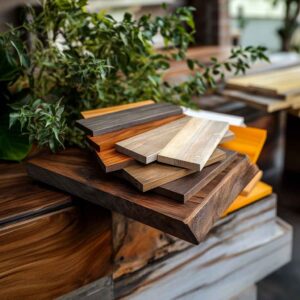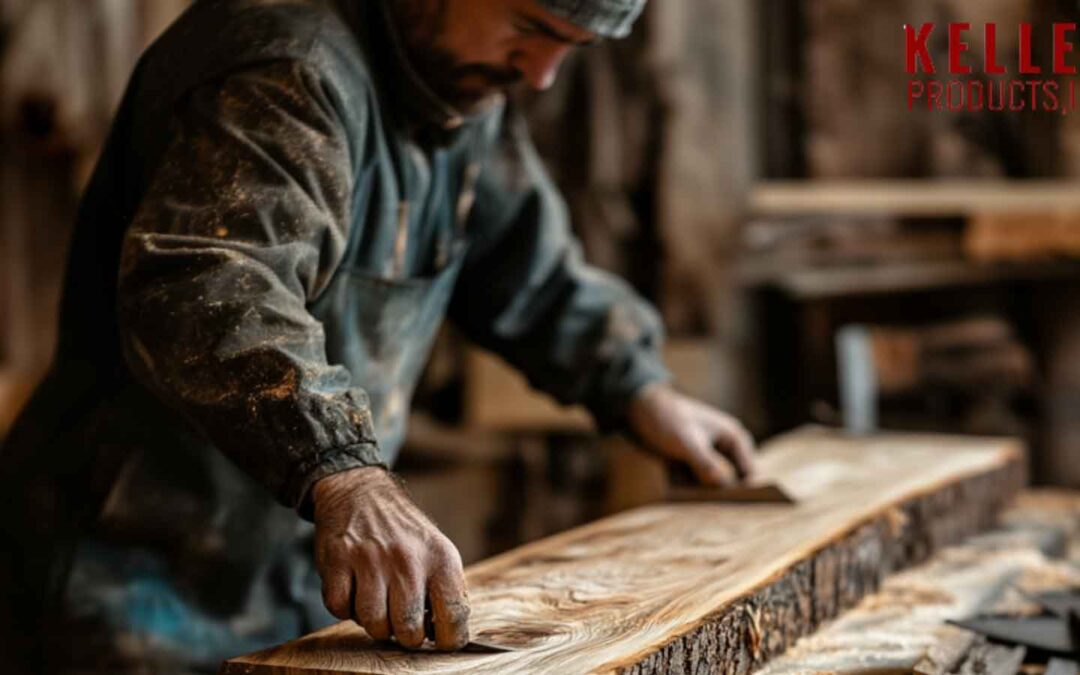In modern construction and design, manufactured wood products stand out as essential elements for sustainable building practices. As innovators in this field, Keller Wood Products combines tradition with technology to deliver environmentally friendly and high-performance wood solutions. Our expertise in wood product manufacturing supports the intricate needs of industries ranging from furniture making to construction, offering both aesthetic and structural benefits.
Understanding Manufactured Woods
Manufactured woods, also known as engineered woods, are composite materials crafted by binding wood fibers, particles, or veneers with adhesives. This process results in a range of products with enhanced properties suited for diverse applications. The key types of manufactured wood products include:
- Plywood: Composed of multiple layers of wood veneers bonded perpendicularly. This configuration enhances stability and strength, making plywood an excellent choice for structural and decorative uses.
- Particle Board: Created from compressed wood chips and resin. Known for its cost-effectiveness, particle board is ideal for interior applications such as cabinetry and furniture components.
- Medium-Density Fiberboard (MDF): Known for its smooth surface, MDF is perfect for detailed finishes in decorative applications. Its consistent texture makes it a preferred choice for intricate designs and high-quality surface finishes.
Key Characteristics and Benefits of Manufactured Woods
Manufactured woods offer several distinct advantages due to their engineered composition. Here’s how these products stand out:
- Dimensional Stability: Achieved through meticulous manufacturing processes that control moisture content and use techniques like cross-laminating layers. This ensures that manufactured woods maintain their shape and size, even in fluctuating environmental conditions. For example, plywood’s cross-laminated layers prevent warping and swelling, making it suitable for both residential and commercial applications.
- Resource Efficiency: The production of manufactured wood furniture parts involves using every part of the tree, including bark and wood chips, which might otherwise be discarded. This maximizes the utility of raw materials and reduces waste. Additionally, many products incorporate recycled wood and by-products, contributing to a more sustainable use of resources. Energy efficiency is another significant benefit, as the manufacturing processes typically require less energy compared to processing solid wood.
- Sustainability: Manufactured wood products are designed with sustainability in mind. Their enhanced durability extends their lifecycle, reducing the need for frequent replacements and maintenance. By efficiently using resources and minimizing waste, these products support environmental sustainability while offering economic advantages.
Expanding Design Potential
Manufactured wood products are revolutionizing design across multiple sectors. Their versatility and adaptability make them invaluable for both innovative and functional applications. Here’s how these materials are transforming design:
- Commercial Interiors: Manufactured woods are increasingly used in commercial interior design, where both aesthetics and durability are essential. For instance, office environments benefit from sleek, modern partitions made from manufactured woods that not only define workspaces but also contribute to a cohesive look. Retail spaces utilize these materials for eye-catching displays and fixtures that enhance the customer experience while ensuring durability.
- Residential Design: In residential settings, manufactured woods offer a blend of style and practicality. Designers and homeowners use these materials for custom cabinetry, built-in shelving, and decorative wall panels. The ability of manufactured woods to mimic the appearance of natural wood, combined with customizable finishes, provides high-end looks at more accessible price points. This versatility allows for personalized living spaces that are both functional and visually appealing.
- Public Spaces: Public areas such as community centers, libraries, and museums benefit from the durability and ease of maintenance associated with manufactured wood. These materials are used in acoustic panels and seating areas that not only improve sound quality but also add aesthetic value. Their adaptability ensures that public spaces can meet practical needs while fulfilling design aspirations.
- Educational Environments: Educational facilities leverage manufactured woods for a variety of applications, from classroom furniture to administrative offices. The ability to produce durable, cost-effective solutions that withstand daily use is crucial in these settings. Moreover, manufactured woods can be designed to fit specific educational needs, such as modular desks that can be reconfigured or storage solutions that maximize space efficiency.
Customization and Practical Benefits
Keller Wood Products offers extensive customization options, enabling designers and architects to tailor projects to their specifications. This flexibility enhances both aesthetic and functional aspects of design:
- Visual Variety: Manufactured woods can simulate the look of rare and expensive wood species at a fraction of the cost. This allows for diverse design options without the financial burden associated with natural materials.
- Functional Adaptations: Manufactured woods can be engineered to include additional features, such as enhanced fire resistance or acoustic properties. These adaptations make them suitable for specialized applications and contribute to the overall functionality of the product.
Streamlined Installation and Maintenance
The precision engineering of manufactured wood products simplifies construction processes, leading to reduced installation time and labor costs. These materials are designed for consistency, which facilitates easy integration into various projects without extensive modifications. Benefits include:
- Ease of Installation: Uniform dimensions and standardized manufacturing processes facilitate quicker and more accurate assemblies. This efficiency is particularly valuable in large-scale projects where time and precision are critical.
- Reduced Maintenance: Manufactured woods are resistant to common issues like decay and insect damage. This resistance lowers long-term care costs and ensures that the materials maintain their appearance and performance over time.
Redefining Woodcraft with Engineered Solutions
Manufactured woods offer numerous advantages over traditional solid wood, including enhanced durability, versatility, and sustainability. These materials are not just alternatives to natural wood; they often surpass solid wood in many respects, offering superior performance and design flexibility. At Keller Wood Products, we are dedicated to pushing the boundaries of what’s possible with wood, inviting architects, designers, and builders to explore the transformative potential of manufactured woods for their projects.
Keller Wood Products plays a significant role in supporting a wide range of projects, from boutique furniture lines to major architectural undertakings. Our commitment to quality and innovation ensures that each project benefits from our reliable and high-performing materials. Whether enhancing a commercial space or contributing to a large-scale construction endeavor, our manufactured woods provide the durability, versatility, and aesthetic appeal required for success.
Ready to harness the benefits of manufactured woods? Contact Keller Wood Products today to discover how our solutions can elevate your design and construction projects.

